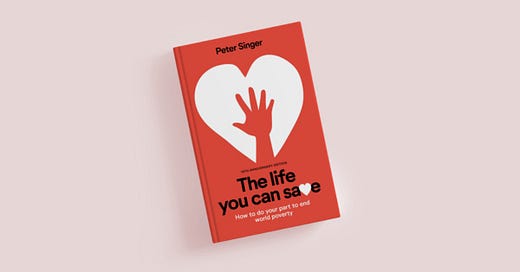In his thought-provoking work The Life You Can Save, philosopher Peter Singer challenges us to reconsider our moral responsibilities in the face of global poverty. Singer’s ethical framework suggests that those of us with sufficient means should donate a portion of our income to alleviate the suffering of others. For instance, if your annual income is $30,000 (approximately £24,000 or €28,000), a reasonable donation might be 3%, or around $900 (£720 or €840) annually ($75, £60, or €70 per month). This middle ground between 1% and 5% offers a balanced approach for contributing to effective charities while maintaining personal financial stability.
But why should we give? And how can we understand this practice from a Buddhist perspective? Here is where the teaching of Dana (generosity) offers profound insight.
Keep reading with a 7-day free trial
Subscribe to The Gentle Law to keep reading this post and get 7 days of free access to the full post archives.




